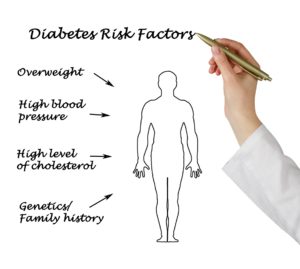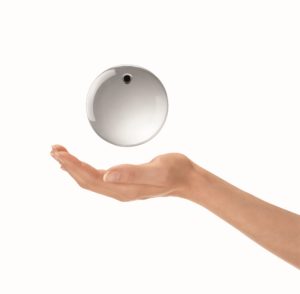Spring is here and with it comes the promise of warmer weather. For many, this time of year also brings with it renewed attempts to shed the extra pounds they put on over the winter. If you have tried repeatedly to lose weight through conventional diet and exercise , but have been unsuccessful and bariatric surgery is not for you, doctors at Flushing Hospital may have a safe and effective weight-loss option for you.

Doctors Sanjeev Rajpal, Darshak Shah and Noman Khan of New York Surgical Specialists (NYSS) are all excited that they are some of the only physicians in the area to offer their patients the revolutionary, Obalon weight loss system. Obalon is the first and only non-surgical, and completely non-invasive weight loss treatment option approved by the Food and Drug Administration (FDA).
Patients who participate in Obalon treatment swallow a small, coated capsule connected to a thin tube. Once the capsule is digested, it naturally dissolves and a small, lightweight gastric balloon unfolds. This balloon is then remotely filled with medical gases via the tube before it is removed. The balloon, once fully inflated, is only the size of a small orange.
This procedure is repeated two more times over a six month period. Once expanded, the three balloons work to facilitate weight loss by taking up space within the stomach, enabling patients to become fuller while eating less.
Each procedure only takes 10 minutes, requires no sedation and can be performed in the NYSS office. After six months the balloons are removed endoscopically while the patient is under light, conscious sedation.
Throughout the entire three-stage, six month process, patients will receive nutritional and exercise support from Flushing Hospital’s weight loss team.
The Obalon Weight Loss System offers many benefits to those patients, who do not qualify for, or are seeking an alternative to bariatric surgery, including:
- Obalon is clinical proven to be twice as effective as diet and exercise alone
- There are minimal risks or side effects
- No sedation is required and the entire procedure only takes 10 minutes
- Obalon is affordable as compared to other surgical weight loss options, but it is not currently covered by most insurance providers
- Patients can resume their normal daily lifestyle immediately
- The procedure is completely reversible
Not everyone is a candidate for the Obalon weight loss system. To qualify, patients must be:
- At least 22 years old
- Have a Body Mass Index (BMI) of 30-40
- Have not had any form of weight loss surgery
- Are actively attempting to lose weight through diet and exercise
- Are committed to maintaining a healthy lifestyle during and after treatment
To learn more information about the Obalon weight loss system, or to make an appointment with one of our highly qualified physicians, please call 718-408-6977.
All content of this newsletter is intended for general information purposes only and is not intended or implied to be a substitute for professional medical advice, diagnosis or treatment. Please consult a medical professional before adopting any of the suggestions on this page. You must never disregard professional medical advice or delay seeking medical treatment based upon any content of this newsletter. PROMPTLY CONSULT YOUR PHYSICIAN OR CALL 911 IF YOU BELIEVE YOU HAVE A MEDICAL EMERGENCY.





 globally as “World TB Day”. The event began in 1982 is sponsored by the World Health Organization and the International Union Against Tuberculosis and Lung Disease and is intended to raise awareness that anyone can contract TB to make health professionals aware of the importance of testing people for the disease.
globally as “World TB Day”. The event began in 1982 is sponsored by the World Health Organization and the International Union Against Tuberculosis and Lung Disease and is intended to raise awareness that anyone can contract TB to make health professionals aware of the importance of testing people for the disease.

